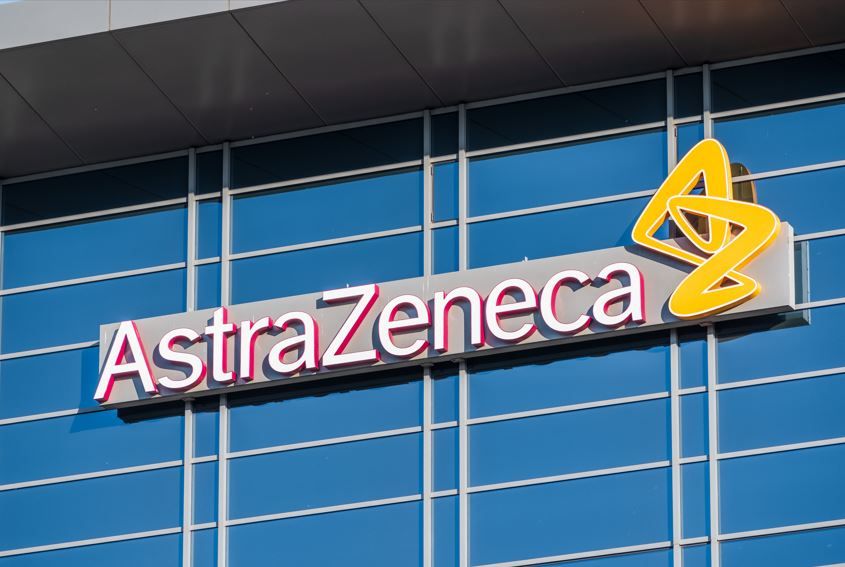- Clinical Technology
- Adult Immunization
- Hepatology
- Pediatric Immunization
- Screening
- Psychiatry
- Allergy
- Women's Health
- Cardiology
- Pediatrics
- Dermatology
- Endocrinology
- Pain Management
- Gastroenterology
- Infectious Disease
- Obesity Medicine
- Rheumatology
- Nephrology
- Neurology
- Pulmonology
Albuterol/Budesonide Reduces Risk of Exacerbation in People with Intermittent, Mild-Persistent Asthma
Albuterol/budesonide (Airsupra) has now proven effective as novel combination as-needed rescue medication for adults with asthma regardless of disease severity.
Albuterol/budesonide (Airsupra), the inhaled anti-inflammatory asthma rescue medication from AstraZeneca, was associated with statistically significant and clinically meaningful reductions in the risk of severe disease exacerbations among individuals with intermittent or mild persistent asthma in the phase 3 BATURA trial, the company announced today.1
©Sundry Photos/stock.adobe.com

The study, which compared use of the albuterol/budesonide combination to use of albuterol monotherapy as as-needed rescue medication in response to increased symptoms, was halted early by the Independent Data Monitoring Committee due to “overwhelming efficacy at preplanned analysis,” according to AstraZeneca.1
“The impressive BATURA trial results add to the body of evidence supporting Airsupra as a first-in-class rescue treatment and its role in reducing the risk of asthma exacerbations in patients regardless of their disease severity, and reducing the need for systemic corticosteroids,” Sharon Barr, executive vice president, BioPharmaceuticals R&D, at AstraZeneca, said in the news release.1
Based on findings from the pivotal phase 3 MANDALA and DENALI trials, the FDA in January 2023 approved the fixed dose combination of a short acting β2 agonist (SABA) and a corticosteroid for use as needed to prevent bronchoconstriction and reduce exacerbation risk in individuals aged 18 years and older with moderate-to-severe asthma (MANDALA) and mild-to-moderate disease (DENALI).2 Albuterol/budesonide significantly reduced the risk of severe exacerbations by 27% compared to albuterol alone in MANDALA and was also associated with significantly reduced use of systemic corticosteroids. Of the 3132 participants in MANDALA, fewer than 200 were under 18 years old, which, at the time, AstraZeneca said, had "precluded meaningful statistical inference of treatment benefits" in younger people.2
Findings from the DENALI study were similar, with the combination also significantly improving lung function compared with albuterol and budesonide dosed individually in people with mild-to-moderate asthma.2
The BATURA phase 3b randomized, double-blind, parallel-group, event-driven trial compared the efficacy and safety of using inhaled albuterol/budesonide (180 µg/160 µg) as an as-needed rescue medication in response to symptoms compared to as-needed albuterol (180 µg) for up to 12 months. The primary endpoint was time to first severe asthma exacerbation. Inclusion criteria required participants to be aged 12 years and over with intermittent or mild persistent asthma. For baseline treatment participants must have been using a SABA alone as needed or a SABA as needed on a background of either low-dose inhaled corticosteroid maintenance therapy or low-dose inhaled or leukotriene receptor antagonist (LTRA) maintenance therapy.1
The strong results from a large study focused on a population with intermittent or mild persistent asthma “further demonstrate the clinically meaningful benefit of an anti-inflammatory rescue approach to reduce the risk of severe exacerbations by treating both symptoms and inflammation at the same time,” James Donohue, emeritus professor of pulmonary medicine at the University of North Carolina and chair of the IDMC, said in the press release.1
The safety and tolerability results from BATURA were consistent with its established profile and no new safety concerns were reported. The data will be shared with health authorities and will be presented as a late-breaking oral presentation at the American College of Allergy, Asthma & Immunology (ACAAI) Annual Scientific Meeting on October 26, 2024, AstraZeneca said.1
Inflammation drives asthma
Inflammation is central to asthma symptoms and to the disease exacerbations. Although the most common medication used as a rescue treatment for symptoms is a SABA, on its own the bronchodilator does not address the inflammatory component of the disease, leaving individuals at risk for severe exacerbations that may require hospitalization and use of oral corticosteroids.3 The well-known adverse events associated with systemic corticosteroids led the Global Initiative for Asthma to discontinue its recommendation for the use of SABA monotherapy as the preferred rescue therapy.4
More than 25 million people in the US have combinations of the variable symptoms of asthma5 and are at risk of severe exacerbations regardless of the severity of disease, adherence to regular treatment or the level of control the treatment provides, according to the news release. Fixed dose albuterol/budesonide is the only anti-inflammatory rescued medication approved by the US FDA for as needed treatment or prevention of bronchoconstriction and to reduce the risk of exacerbation in people with asthma aged 18 years and older.1
The combination is being studied in adolescents with asthma (aged 12 to younger than 18 years old) in people with asthma in China in the ACADIA Phase III trial.
